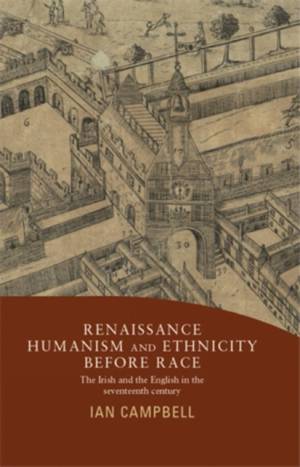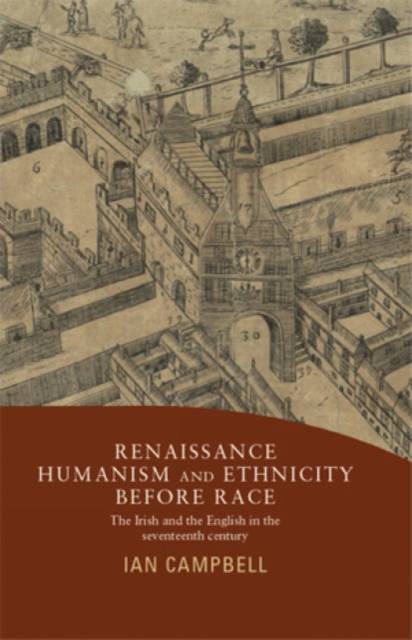
- Afhalen na 1 uur in een winkel met voorraad
- Gratis thuislevering in België vanaf € 30
- Ruim aanbod met 7 miljoen producten
- Afhalen na 1 uur in een winkel met voorraad
- Gratis thuislevering in België vanaf € 30
- Ruim aanbod met 7 miljoen producten
Zoeken
Renaissance Humanism and Ethnicity Before Race
The Irish and the English in the Seventeenth Century
Ian Campbell
Hardcover | Engels
€ 209,45
+ 418 punten
Omschrijving
The modern ideology of race, so important in twentieth-century Europe, incorporates both a theory of human societies and a theory of human bodies. Ian Campbell's new study examines how the elite in early modern Ireland spoke about human societies and human bodies, and demonstrates that this elite discourse was grounded in a commitment to the languages and sciences of Renaissance Humanism. Emphasising the education of all of early modern Ireland's antagonistic ethnic groups in common European university and grammar school traditions, Campbell explains both the workings of the learned English critique of Irish society, and the no less learned Irish response. Then he turns to Irish debates on nobility, medicine and theology in order to illuminate the problem of human heredity. He concludes by demonstrating how the Enlightenment swept away these humanist theories of body and society, prior to the development of modern racial ideology in the late eighteenth century.
Specificaties
Betrokkenen
- Auteur(s):
- Uitgeverij:
Inhoud
- Aantal bladzijden:
- 256
- Taal:
- Engels
Eigenschappen
- Productcode (EAN):
- 9780719088360
- Verschijningsdatum:
- 30/11/2013
- Uitvoering:
- Hardcover
- Formaat:
- Genaaid
- Afmetingen:
- 155 mm x 234 mm
- Gewicht:
- 521 g

Alleen bij Standaard Boekhandel
+ 418 punten op je klantenkaart van Standaard Boekhandel
Beoordelingen
We publiceren alleen reviews die voldoen aan de voorwaarden voor reviews. Bekijk onze voorwaarden voor reviews.








